Footage captures wild feeding frenzy as shiver of sharks descend on whale carcass
Environmental authorities have captured the moment a massive shiver of sharks descend on a whale carcass, leading to a feeding frenzy.
WARNING: Graphic images
Wild footage has captured the moment a massive shiver of sharks – descend on a whale carcass off the east Australian coast.
Queensland authorities have issued warnings about dead sea life after about 50 tiger sharks were drawn to a whale carcass off the coast of Hervey Bay.
Akin to something from a David Attenborough documentary, the feeding frenzy was captured via drone footage by Department of Environment and Science (DES) marine park rangers on Sunday afternoon.
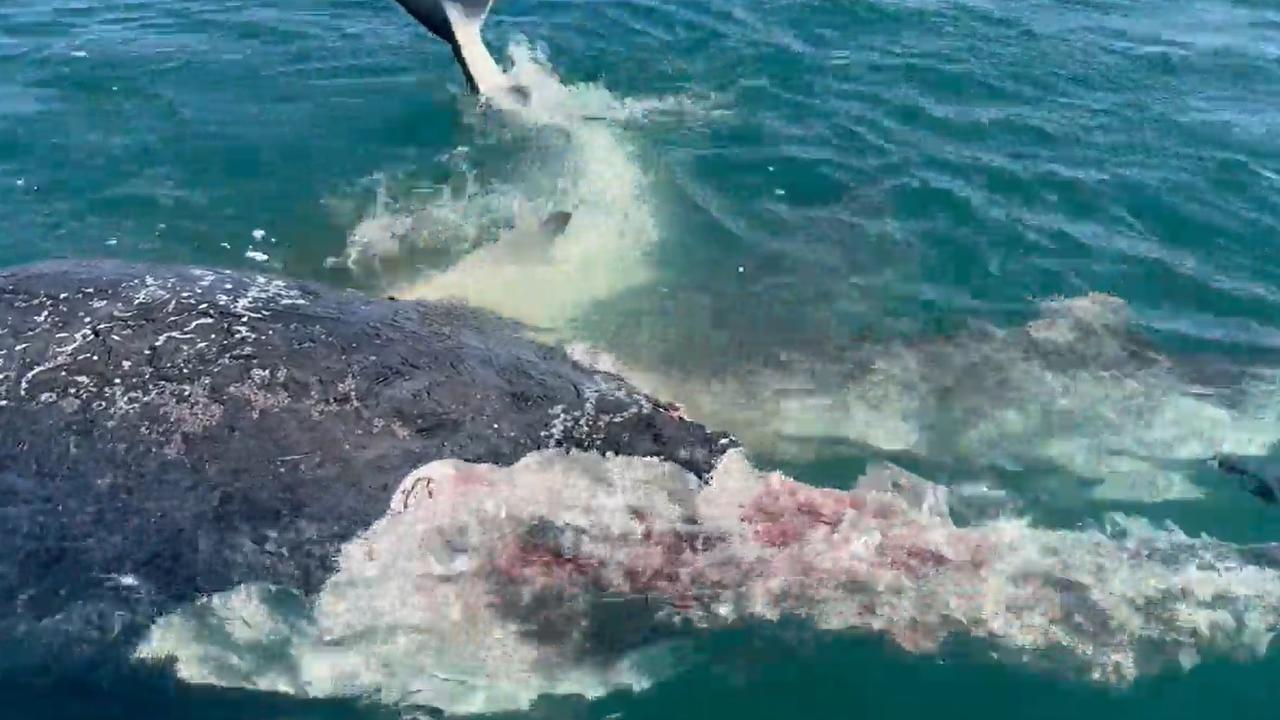
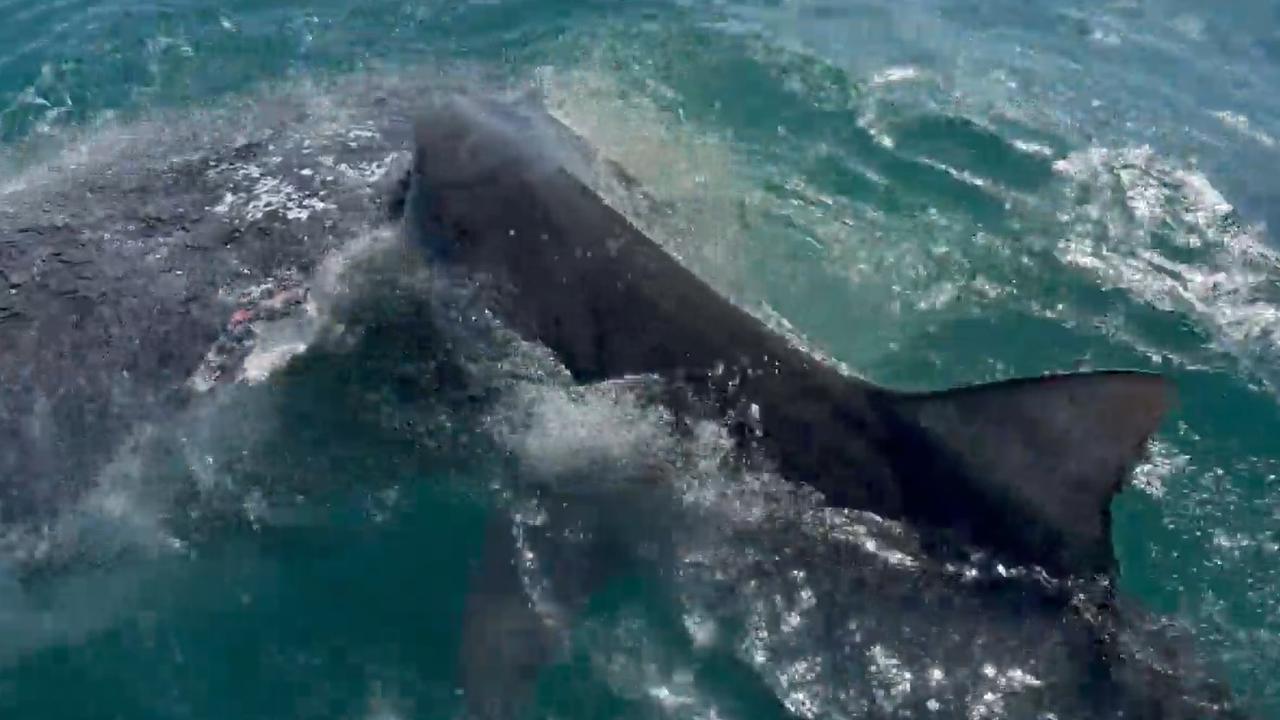
The deceased humpback is the fifth whale carcass to have been spotted in waters off Queensland over the last fortnight, with the annual whale migration well under way as the great mammals return to southern waters.
Senior ranger Daniel Clifton said Sunday’s vision was a reminder for people to keep clear of marine animal remains and showed the important ecological relationship between sharks and whales.
“Where there are dead whales, there are likely sharks nearby and this vision clearly shows why this is the case,” Mr Clifton said.
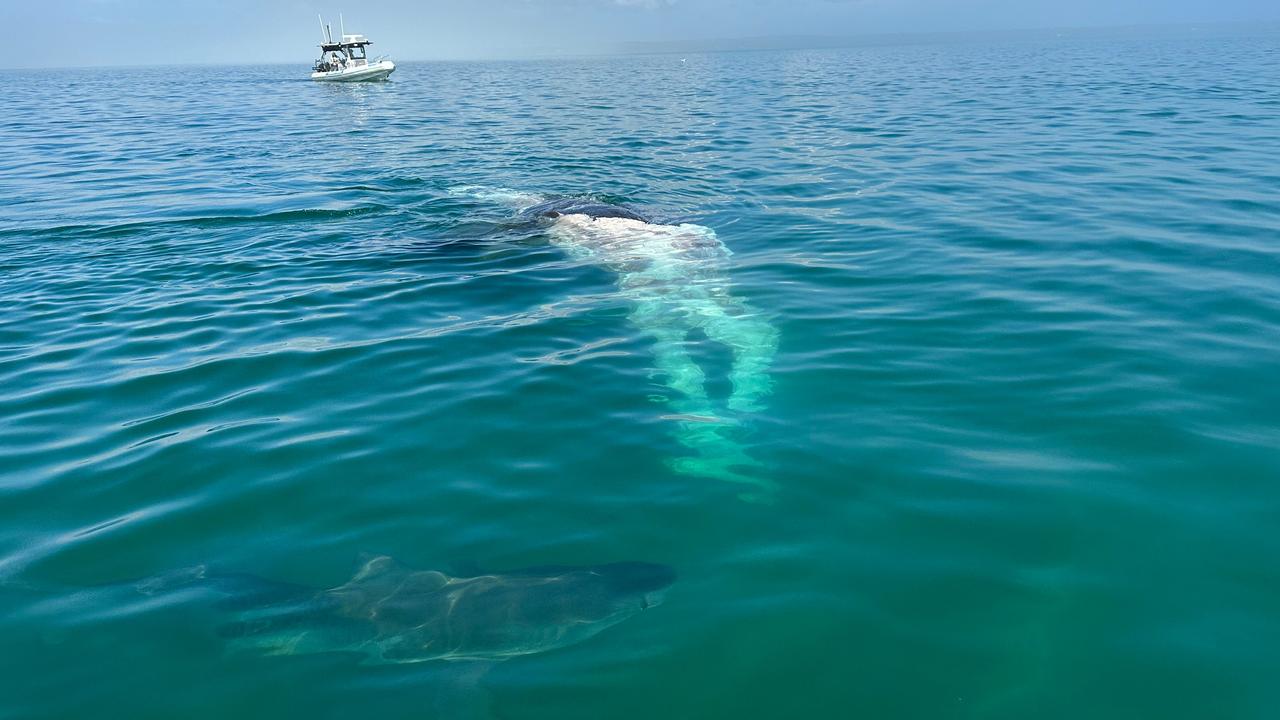
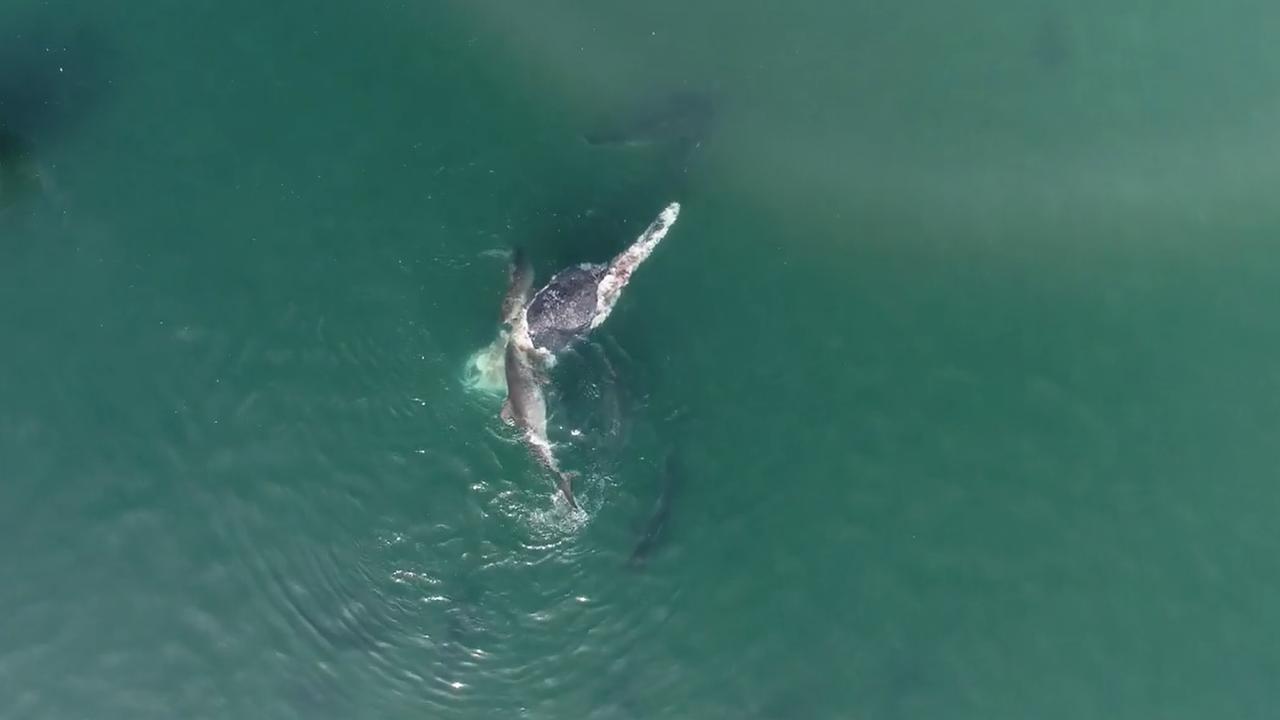
“The death of one whale, although sad, creates a life source for many other scavenging animals, including fish, sharks and other marine life.
“We’re fortunate here in the Great Sandy Marine Park that we can experience these natural processes first hand.”
Mr Clifton said sharks could still be present near whales in shallow waters.
“That is why we ask people to keep their distance from dead whales that wash up near the shore,” he said
“Marine animals can also carry zoonotic diseases, so you should never touch them.
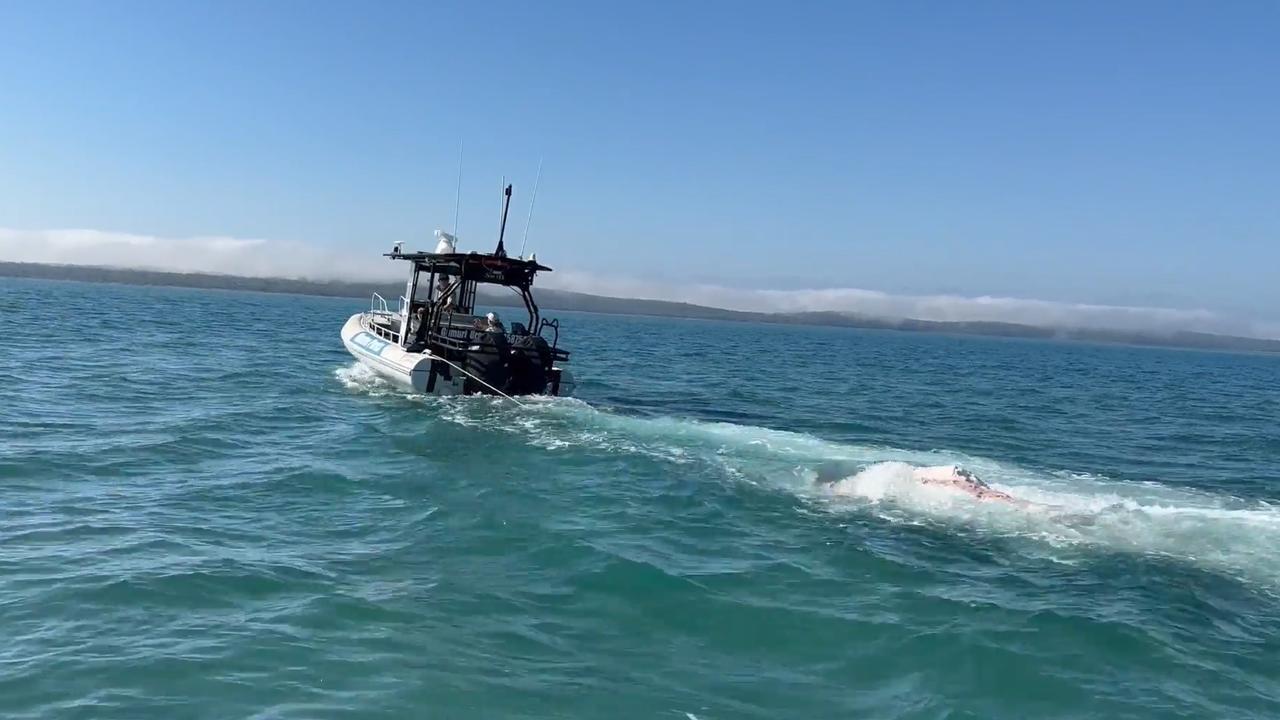
More Coverage
“The QPWS and local councils have highly trained experts ready to deploy to whale strandings, and it is best to wait for the experts to attend and assist during stranding events.”
Since June 16, two other dead humpback whales have washed ashore at Susan River and Inskip, while two Bryde’s whales were found on beaches at K’gari.
All sightings of stranded marine life, including whales, should be reported immediately to DES on 1300 130 372 or the relevant council.





